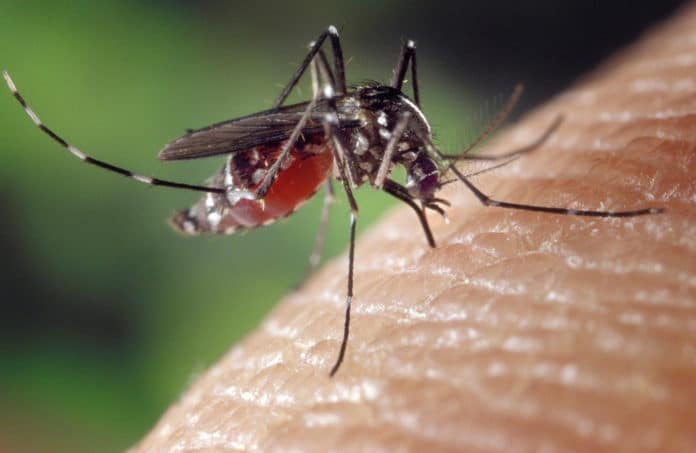Using advancements in CRISPR-based genetic engineering, scientists have created a new technique to control the population of mosquitos. The technique is a precision-guided sterile insect technique or pgSIT.
Developed by scientists at the University of California San Diego, the pgSIT alters genes linked to male fertility and female flight in Aedes aegypti. Aedes aegypti is the mosquito species responsible for spreading wide-ranging diseases, including Malaria, dengue fever, Zika virus, and Chikungunya virus infection.
The method uses a CRISPR-based approach to engineer deployable mosquitoes that can suppress populations. Using CRISPR, the technique sterilizes male mosquitoes and renders female mosquitoes, which spread disease, flightless.
The safety features of this method include: it is self-limiting and is not predicted to persist or spread in the environment.
UC San Diego Biological Sciences Professor Omar Akbari said, “The envisioned pgSIT system could be implemented by deploying eggs of sterile males and flightless females at target locations where mosquito-borne disease spread is occurring.”
“As envisioned, pgSIT eggs can be shipped to a location threatened by mosquito-borne disease or developed at an on-site facility that could produce the eggs for nearby deployment. Once the pgSIT eggs are released in the wild, typically at a peak rate of 100-200 pgSIT eggs per Aedes aegypti adult, sterile pgSIT males will emerge and eventually mate with females, driving down the wild population as needed.”
Scientists noted, “Supported by mathematical models, we empirically demonstrate that released pgSIT males can compete, and suppress and even eliminate mosquito populations. This platform technology could be used in the field, and adapted to many vectors, for controlling wild populations to curtail disease in a safe, confinable and reversible manner.”
According to scientists, the technique could be directed to other species beyond Aedes aegypti that spread disease.
Scientists noted, “This study suggests pgSIT may be an efficient technology for mosquito population control and the first example of one suited for real-world release. In the future, pgSIT may provide an efficient, safe, scalable, and environmentally friendly alternative next-generation technology for wild population control of disease-spreading mosquitoes resulting in wide-scale prevention of human disease transmission.”
Journal Reference:
- Ming Li, Ting Yang, Michelle Bui et al. Suppressing mosquito populations with precision-guided sterile males. Nature Communications, 2021; 12 (1) DOI: 10.1038/s41467-021-25421-w
